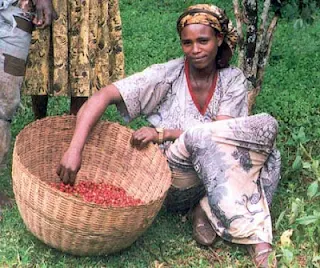Africa is Working for Free
Most value added manufacturing contracts have no monetary value to Africa and enables the keep Africa poor and backwards business model.
Africa is blessed with natural resources, so what?
Manufacturing industries are used to measure growth and structure, if the cost of goods and materials is more than the cost of the final manufactured product then the product is of no value to Africa and it is giving away products for free.
Africa is the richest continent on the planet remarkable for her rich soil, abundant land, forests and trees, oil, minerals, precious stones and metals, water, and wildlife.
Yet Africa remains poor because of a lack of value added manufacturing sectors on the African continent. Africa has an average of 12.7 percent value-added manufacturing.
Africa has an average 12.7 percent value-added manufacturing GDP; Algeria has the highest at 24.2% Sierra Leone 1.6% value added manufacturing.

The definition of manufacturing is any industry that makes products from raw materials by the use of manual labor or machinery. Value-added manufacturing is the gross receipts minus the cost of goods and services purchased from other companies, the difference between the value of goods and the cost of materials or supplies that are used in producing them. If the cost of goods and the cost of materials or supplies is more than the cost of the final manufactured product then the product is of no value to Africa. Africa does not benefit from the processing and manufacturing portion of goods such as coffee beans, timber and cut flowers, only the agricultural. Under development has held most of Africa backwards because African countries are unable to add value to raw materials so Africans can sell on local and international markets and negotiate prices and trade rules favorable to the citizens of Africa. Africa has an average of only 12.7 percent value-added manufacturing; Algeria has the highest at 24.2 percent in 2019 while Liberia and Sierra Leone are the lowest on the African continent with 1.6 percent. The manufacturing industry plays a big role in boosting a country’s economy. Here are some of the reasons why manufacturing is important to a country as well as its economy; commercial innovation, creation of job opportunities, manufacturing industries help to support other companies; manufacturing companies promote trading in a country, and adds value to the economy of a country. A solution to the value added manufacturing issues for Africa is for the African Diaspora to seriously invest in the manufacturing industries and firms that would make the greatest contribution to Africa. These have the greatest potential to maintain or expand employment in Africa which are the industries of computers and electronics, chemicals, pharmaceuticals, transportation and machinery, manufacturing provides high-wage jobs, especially for workers who would otherwise earn the lowest wages. The manufacturing industry plays a big role in boosting a country’s economy. Remember, the difference between the value of goods and the cost of materials or supplies that are used in producing is the value-added manufacturing cost. Manufacturing value added percent of GDP for Africa 2017-2019
|
Together we build awareness that boost harmony, education, and success, below are more links to articles you will find thought provoking.
- African Country Names Your Saying Wrong
- What do Waist Beads Symbolize in Africa?
- About African Healers and Witchdoctors
- Hurricanes are Angry African Ancestors
- Highest Temperature and Lowest Temperature in Africa
- About African Night Running



























